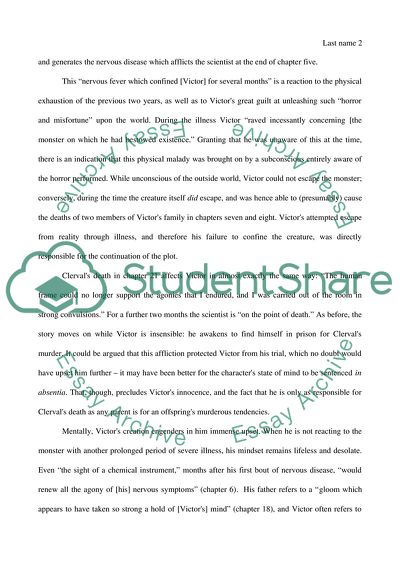Cite this document
(“Victor Frankenstein's Illness as Escape Mechanism Essay”, n.d.)
Retrieved from https://studentshare.org/literature/1408140-victor-frankensteins-illness-as-escape-mechanism
Retrieved from https://studentshare.org/literature/1408140-victor-frankensteins-illness-as-escape-mechanism
(Victor Frankenstein'S Illness As Escape Mechanism Essay)
https://studentshare.org/literature/1408140-victor-frankensteins-illness-as-escape-mechanism.
https://studentshare.org/literature/1408140-victor-frankensteins-illness-as-escape-mechanism.
“Victor Frankenstein'S Illness As Escape Mechanism Essay”, n.d. https://studentshare.org/literature/1408140-victor-frankensteins-illness-as-escape-mechanism.


